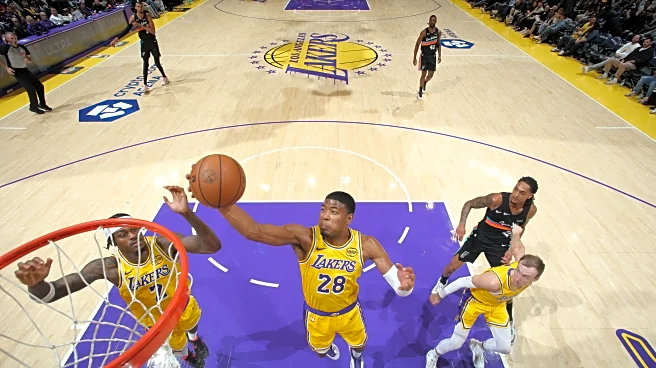What's Happening?
The Athletic, a subscription-based sports journalism site owned by The New York Times, has released the latest edition of its NYT Connections: Sports Edition puzzle. Despite its name, the puzzle includes categories that are not strictly sports-themed, offering a mix of challenges for players. The puzzle is available through The Athletic's app and can also be played for free online. The current edition features groupings such as card suits, dependable traits, names associated with Allen, and sports terms that align with the NATO phonetic alphabet. This diverse range of themes aims to engage a broad audience, including those with varying levels of sports knowledge.
Why It's Important?
The release of the NYT Connections: Sports Edition puzzle highlights The Athletic's strategy to broaden its appeal beyond traditional sports fans. By incorporating themes that are not exclusively sports-related, the puzzle attracts a wider audience, potentially increasing engagement and subscription rates for The Athletic. This approach reflects a growing trend in media to diversify content offerings to capture a broader demographic. The puzzle's availability online for free also serves as a marketing tool to draw in new users who may eventually subscribe to The Athletic for more comprehensive sports coverage.
What's Next?
As The Athletic continues to develop and release puzzles like the NYT Connections: Sports Edition, it may explore further diversification of themes to maintain user interest and expand its subscriber base. The success of these puzzles could lead to more interactive content offerings, potentially influencing other media outlets to adopt similar strategies. Additionally, feedback from users may guide future editions, ensuring that the puzzles remain challenging and engaging for a diverse audience.
Beyond the Headlines
The inclusion of non-sports themes in the NYT Connections: Sports Edition puzzle may have broader implications for how sports media is consumed. It suggests a shift towards more inclusive content that acknowledges the varied interests of sports fans. This could lead to a cultural shift in sports journalism, where the focus is not solely on sports events but also on related cultural and social topics. Such a shift could foster a more holistic understanding of sports as part of broader societal narratives.











